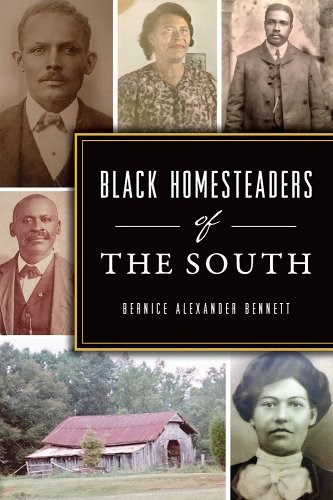January 12, 2023
Family genealogy check up and checklist
The beginning of 2023 is a great time to utilize the free genealogy resources from the National Archives. It is the family group sheet and ancestral chart.



January 12, 2023
The beginning of 2023 is a great time to utilize the free genealogy resources from the National Archives. It is the family group sheet and ancestral chart.


January 6, 2023

Black Homesteaders of the South with Bernice A. Bennett
| On Saturday, February 4, 2023, 12 – 1:30 PM, the African American History and Culture Museum will host its African American History and Culture Event. It will be held on the Concourse, Oprah Winfrey Theater + streaming It’s free. It’s also recommended that you get tickets or register at www.etix.com. Join genealogist Bernice A. Bennett who will uncover the stories of African American families who became landowners through the Homestead Act of 1862 from her latest book Black Homesteaders of the South. Bennett’s work is a modern story of black genealogists who networked through a Facebook page to trace the footsteps of their ancestors in Alabama, Arkansas, Florida, Louisiana & Mississippi. Find out how these families navigated the application process through the federal government, and what this legacy means for their descendants today. Bernice Alexander Bennett is an award-winning author, genealogist and host of Research at the National Archives & Beyond BlogTalkRadio program. Her genealogical interests focus on Southeast Louisiana and Edgefield and Greenwood Counties, South Carolina. Bennett is an author and contributor to 2 award winning genealogy books including Our Ancestors, Our Stories and Tracing Their Steps: A Memoir. A New Orleans native, Bennett is a volunteer with the Homestead National Historical Park Service identifying descendants of Black homesteaders to share their stories. |

November 21, 2022
We are thankful that you are a member of our genealogy family. To show our gratitude, the Good Genes Genealogy Services team is offering our November 2021 ebook, Family Ties That Bind, to you at a Black Friday 2022 rate.
We are providing you with preview of the book. Please follow the link to our publisher’s store, or pick up your copy on Amazon or Barnes & Noble. Enjoy reading a portion of our Chapter 3.

Chapter 3
There’s a knock on the door.
It’s Monday, June 2, 1890, the first day the U.S. Census takers began their monthlong gathering of data that would provide unique, one-time information forever etched in our historical documents. The questioner posed several questions to the household representative. Among those worth noting was the following:
Question #4 ask whether the races of the household inhabitants are “white, black, mulatto, quadroon, octoroon, Chinese, Japanese or Indian.” The Census questioner could no longer look at the household and answer the question. It was up to the household member to self-disclose the information. It was the first and last time that the “quadroon and octoroon” race descriptions were asked on Census documentations.
According to a National Public Radio report, “the government concluded: “These figures are of little value.” “Quadroon” and “octoroon” have never been used again for the census.”

© 2024 Good Genes Geneaology Services